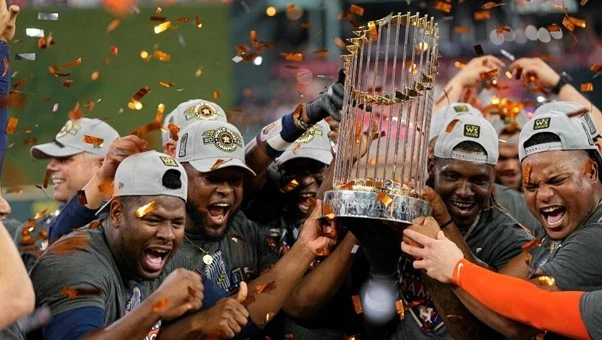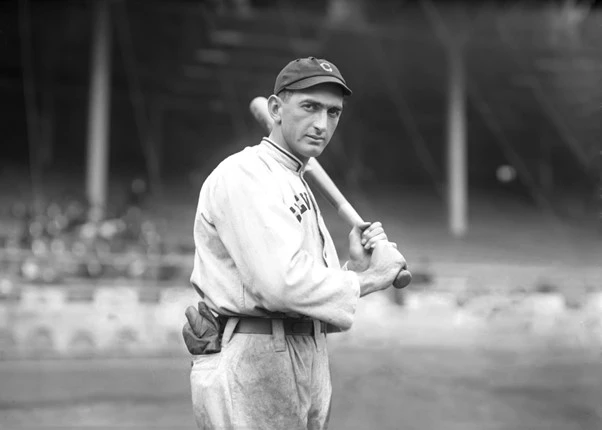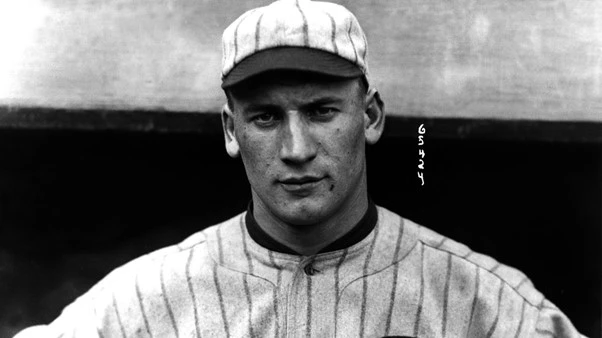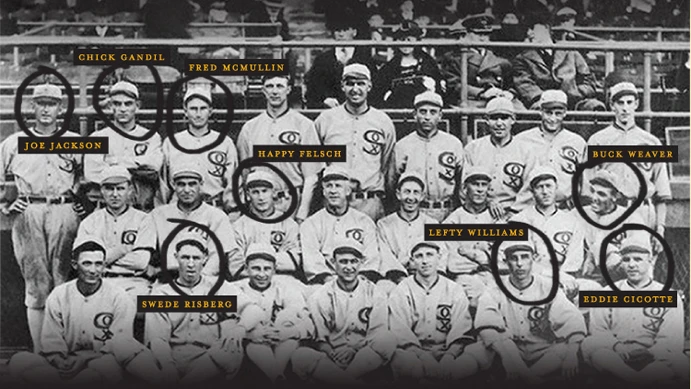
Scandals in US History: The Black Sox (1919)
The World Series is the crème de la crème of baseball - the sport's Super Bowl or Stanley Cup equivalent. While this series has played host to some incredible match-ups over the years, it has also been mired in scandal at times...

The Black Sox Betting Scandal (1919)
The 1919 World Series forever changed the landscape of professional baseball. The series was contested between the Chicago White Sox and the Cincinnati Reds, with the latter winning the nine game series 5-3. However, the result is almost immaterial as the series is remembered for something else entirely.
In a dark chapter of the sport's history, several members of the Chicago White Sox, conspired with gamblers to intentionally throw the Championship series against the Cincinnati Reds. The scandal, also referred to as the Black Sox Scandal, exposed the corrupt nature of the game and led to major reforms in the sport.
Who Was Involved?
Eight players were implicated in the scandal, receiving lifetime bans from the sport. Although some players withdrew from the scheme before the World Series, several key players allowed themselves to be coerced into participating.
“Shoeless” Joe Jackson
Shoeless Joe Jackson, a legendary outfielder, was arguably the most high profile name tied to the scandal. While his exact involvement remains disputed, it is widely believed that Jackson accepted money to participate in the fix. Despite his impressive performance in the series, he was permanently banned from professional baseball by Commissioner Kenesaw Mountain Landis.

Eddie Cicotte
Eddie Cicotte, a star pitcher for the Chicago White Sox, played a significant role in the scandal. As one of the 'Black Sox' players, he intentionally underperformed in the series to benefit from illicit gambling winnings. Cicotte was promised a $10,000 bonus if he helped to throw the games.
Arnold “Chick” Gandil
Chick Gandil, the first baseman of the White Sox, was believed to be the primary instigator of the fix. He orchestrated the meeting between the players and the gambling cliques, arranging for the fix to take place. Gandil recruited other players to join the conspiracy.
Gandil, along with Cicotte and Jackson, ultimately confessed to their part in the conspiracy and received lifetime bans.
Oscar “Happy” Felsch
Felsch, a talented center fielder, was known for his strong arm and powerful hitting. He was an integral part of the White Sox lineup, contributing both defensively and offensively. However, his involvement in the betting scandal tarnished his reputation and forever linked his name to one of the darkest moments in baseball history.

In the scandal, Felsch was one of the players who conspired with gamblers to intentionally underperform during the World Series in exchange for bribe money. This illicit act not only betrayed the fan's trust but also tarnished the integrity of the game.
George “Buck” Weaver
Buck Weaver was a talented infielder and a key member of the Chicago White Sox. However, unlike several of his teammates, Weaver did not actively participate in the conspiracy to throw the series against the Cincinnati Reds.
Despite his innocence, Weaver's failure to report the illicit activities of his teammates ultimately led to his ban from professional baseball. As news of the scandal broke, leading to the exposure of eight players who conspired to intentionally lose the games, Weaver found himself implicated in the wrongdoing due to his association with the team.

Fred McMullin
McMullin's involvement in the scandal came to light when he approached a teammate, pitcher Eddie Cicotte, with the idea of throwing the World Series. Along with Chick Gandil, McMullin played a crucial role in recruiting other players to join the conspiracy.
During the World Series, McMullin provided information about the plot to gamblers, which further solidified his involvement. An investigation revealed that McMullin was paid $5,000 to participate in the conspiracy.
Claude “Lefty” Williams
While not as widely recognized as some of his teammates like Shoeless Joe Jackson or Eddie Cicotte, Williams played a notable part in the conspiracy. Throughout the course of the series, he started two games and had a 1-1 record with a respectable 2.91 earned run average (ERA). However, it was later revealed that even though Williams did not perform poorly in these games, he still accepted bribe money in exchange for his involvement in the fix.
Charles “Swede” Risberg
As a shortstop for the Chicago White Sox, Risberg was one of the key players involved in fixing the outcome of the series. His position as a starting player allowed him to directly impact the outcomes of the games.
Not only was Risberg a participant in the fix, but he also had close connections with other players involved in the scandal, such as Eddie Cicotte and Chick Gandil. They worked together with Risberg to ensure the desired results, undermining the integrity of the game.
The Impact of The Black Sox Scandal
The scandal led to a widespread mistrust of the sport, as fans and team owners questioned the authenticity of the games they were watching.
The fallout from the scandal ultimately led to significant changes in the governance of baseball, with the appointment of Kenesaw Mountain Landis as the first Commissioner of Baseball and the implementation of stricter rules and regulations to prevent similar scandals from occurring in the future.
The incident also inspired several films, books, and TV references, with the 1989 flick Field of Dreams being the most notable of them all.
The scandal served as a wake-up call for the league and marked a turning point in the history of Major League Baseball, forever changing how the sport was perceived and managed.

Author
Content Editor





